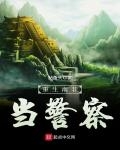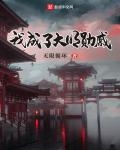Volume 1 Chushan Bandits Chapter 96: Waves are formed from small waves
All that Xu Huai, Wang Bing, Deng Gui and Lu Xiong could do with all their efforts to save the hearts and minds of the two or three thousand soldiers and civilians trapped in Huaiyuan.
And as the bandit armies in various villages established strongholds in the mountains and small and medium-sized villages on the periphery and blocked the source of Huai River, both Wang Bing and Deng Gui could only leave their influence on the major clans who retreated to the fortresses to fate.
For the bandit army, although blocking the Huaiyuan River consumed more manpower than expected, the slight ripples they created soon swept into the depths of the Tongbai Mountains and created a devastating storm.
The momentum was so great that neither Xu Huai nor Wang Bin had fully anticipated it.
The bandit troops in various camps were indeed tied down in the early stages.
The fortresses where the major clans lived together were mainly built on the transition zone where the hills on both sides of the Huai River extend to the main ranges of the North and South Ridges.
For example, the Lutai villages can not only control the arable land resources in the hilly area, but are also easy to defend and difficult to attack.
A large number of bandit troops from various camps were tied down outside Huaiyuan, and they were sure not to use their elite troops to attack these sturdy forts.
However, the slight ripples made the poor young people at the bottom of society restless, and the clan could no longer suppress them easily.
Even for a long time, the conflicts caused by the continuous division within the clan had become difficult to resolve, and at this time it became a catalyst for the further deterioration of the situation.
However, all this had signs.
For example, the subtle confrontation between the upper and lower Xu families in Lutai Village; after Pan Chenghu occupied Shangliu Village, young and strong men like Han Qi were easily bewitched and killed the wealthy families in the village in exchange for surrender and became bandits; Zhou Jianxiong, Yin Peng, Wu Liangsheng and others were eager to join the bandits; the dispute between Huaiyuan Tieshi Lane and Liushi Lane over the brutal massacre of the Zhong family.
When the storm started, hundreds of impoverished young men not only formed gangs but also joined the bandits.
Quite a number of people, stimulated or triggered by Zhong Changqing's bloodbath at Zhongjiazhuang, recalled the hardships of their own long-term oppression and exploitation. When the coalition forces of various strongholds raised the banner of robbing the rich to help the poor and attacked some small and medium-sized forts, they were willing to step into the front line and serve as vanguards.
What's worse, some people, before joining the bandits, would secretly form a group of dozens or even hundreds of people, capture the powerful people in the clan who usually abused their power, tie them up or kill them directly, and then open the village gates to welcome the coalition forces from various villages to move in.
Seeing that the turmoil caused by Hutou Village was gradually spreading, forces from Laoyatan, Shuanglong Village, Huangnifeng and other mountain strongholds came out from the deep mountains and forests and joined the mountain stronghold coalition. In just over a month, the number of bandits expanded rapidly to eight or nine thousand people.
With Huaiyuan Street as the center, the surrounding small and medium-sized forts fell at a rate of one every two or three days, and a large number of refugees fled to the wild.
The wind starts from the tip of the green duckweed, and the waves form from the ripples.
The enemy army failed to completely block Huaiyuan, and Xu Huai and his men were still able to get news from the outside world in a timely manner.
They knew that not only had bandits become a powerful force in the Tongbai Mountains, but bandits of all sizes had also become active in the Huaiyang Mountains, which stretched for thousands of miles to the east of the Tongbai Mountains and spanned the southwestern states of the Huainan West Road.
Xu Huai stood on the newly built watchtower in the courtyard. The weather was fine and he could see the situation near the four strongholds built by the bandit army on the east bank of the Baijian River seven or eight miles away.
In addition to Hutou Village, there were three other bandit groups led by Guo Junpan of Laoyatan and Zhou Tian of Shuanglong Village on the outskirts of the market. Each of them had a stronghold in a small village. There were two thousand bandits gathered on the east bank of Baijian River near the market alone.
Pan Chenghu was afraid of fighting at first because his troops had suffered severe losses before, but in recent days, four or five hundred new bandits have joined in to reinforce them. Even if it is to eliminate the weak and keep the strong, or even for training, it has prompted Pan Chenghu and other bandit chiefs such as Guo Junpan and Zhou Tian to launch tentative attacks on the streets of Hedong during this period of time.
The street market camp gradually expanded from the initial 60 people to 150 people, restricting the bandits outside the street market, but there were also cumulative casualties of 50 to 60 people.
This number may not seem like much, but among the more than 2,000 soldiers and civilians in Huaiyuan, there are only a little over 1,000 young and strong men. The cumulative casualties among the township camp and the patrol soldiers in the past half month have exceeded 100. This ratio is not low.
The good thing now is that internal supplies are relatively sufficient, and the connection with the outside world through the Huai River has not been completely cut off. After enduring the initial panic, the military and civilians in Huaiyuan were not frightened by the casualties and the large numbers of the enemy troops.
In fact, although the bandit army was large in number, with eight or nine thousand men under their command, they formed a massive mass, but they successively captured small and medium-sized forts - the bandit army lacked weapons and armor, and relied on captured food and fodder. They did not even have the most basic training, and for the time being they were not able to attack large cities and forts.
In the past few days, the streets have pushed down the outer houses, dug shallow trenches, and built low protective walls with broken bricks and wood. The defense can be said to be quite simple, but the bandit army's several tentative attacks were easily defeated by Xu Huai and his men.
Although the Xu family did not send troops directly from Yuhuangling to meet the enemy's advance, with the persistence of Xu Wujiang and others, they finally crossed Qingliu Creek and built a small fortress on the north bank before the enemy's force grew.
There is a small fort with a radius of more than 100 steps standing in the northern village of Qingliu Creek. It not only blocks the passage of the enemy army from the north bank of Qingliu Creek to attack Liuzhai, Dongzhai, Xiema Mountain and other places, but also reveals its edge.
Don't underestimate the poor people in the lower branch of the Xu Qing family. However, compared with other large clans, the clan property can allocate thousands of strings of money and grain every year for clan schools, ancestral halls, autumn training, and helping the poor, so the conflicts between the upper and lower branches are not that intense.
The most crucial point is that before the situation worsened, Xu Wufu was forced to spend large sums of money and grain with several wealthy families in the clan to develop places such as Lion Camel Ridge. He also stockpiled supplies and actively expanded the scale of internal construction.
These provide ample job opportunities for the young and strong in the tribe.
It is also promised that the newly reclaimed land between Yuhuangling and Shituoling will be leased and sold first to households with little or no land for cultivation.
Within the clan, even though Xu Wufu, Xu Wujiang and others have their own plans, under the current critical situation, the elite backbones of the clan can still unite together.
It can be said that Xu successfully mobilized fully before the crisis broke out.
The Xu family had more than 2,000 young men in Yuhuangling, and there were also seven or eight small and medium-sized villages like Shangliu Village nearby. At most, they could mobilize 1,500 to 1,600 young men who had received military training. In addition to a large amount of food, they also stored a large amount of iron and tanned cowhide. They secretly expanded the scale of the blacksmith shop in the village, cast weapons, and made armor in advance...
To say that the coalition forces were not afraid of Xu suddenly attacking from behind at this time was pure self-deception.
Therefore, although the defense of Hedong Street Market seemed weak, the worry of Yuhuangling was there, which restricted the bandits from going all out and storming the street market from the east bank of Baijian River. They could only focus on the west bank, constantly building new strongholds, and gradually approaching the military camp.
This is actually the shallow attack and fortification tactic that the Hexi armies have summarized from the many battles against the Dangxiang people over the past hundreds of years.
To put it simply, the Hexi troops were facing the absolute superiority of the Dangxiang cavalry, and outside Hexi there was a sand dune belt (Gobi Desert) stretching for hundreds of miles, making long-distance roundabout operations extremely difficult and risky.
In the fight against the Dangxiang people, the Western Army relied more on short-range infantry attacks , taking advantage of the brief period of infantry control to quickly build forts and military camps, expanding its territory bit by bit.
Lu Xiong had previously taught the rural camp to use this method to cooperate with Xu Huai in resisting bandits on the outskirts of the street.
Zheng Hui, as Cai Ying's strategist, was hiding behind the scenes at this time and stirred up such a big wave. He made the bandit chieftains such as Chen Zixiao use this tactic to approach the military camp from the west bank, which can really be said to be a continuation of the same tradition.
This made Xu Huai feel that if time dragged on, the balance of victory would definitely tilt towards them.
Ten days ago, in order to fulfill his duties as the governor of Tangzhou and the military commander, Chen Shi mobilized more than 800 archers and swordsmen from Biyang County and selected and trained soldiers from the state, entered Tongbai Mountain from the west entrance of Zoumadao, and fought a battle with the bandit army in Yehu Valley outside Yushan Post Station.
Although the prefecture and county later sent a letter to Huaiyuan saying that more than 400 bandit corpses were found in this battle, the prefecture soldiers did not continue to attack Yushan Post Station after the battle, but instead hastily withdrew from Tongbai Mountain.
However, the bandit troops that subsequently besieged Huaiyuan had many more standard robes, armor, and weapons.
From this we can see that Chen Shi suffered a great loss in front of Yushan Posthouse when he hastily sent troops to suppress the rebellion. However, he tried every means to cover up the truth of his defeat and whitewash the situation afterwards.
In addition, in addition to the local soldiers, county archers, patrol soldiers and garrison soldiers, Tangzhou also had a battalion of stationed imperial guards, and the office of the General Manager and Pacifier was located in Dengzhou, which was also located in the Nanyang Basin.
However, more than a month has passed since the bloodbath in Zhongjiazhuang. The prefectures and counties said that they had reported the incident to the Lu Si many times, but the feedback from the prefectures and counties only said that the Lu Si had reported the bandit situation in Tongbai Mountain to the court.
Although there are a total of 14,000 to 15,000 soldiers and horses stationed in the southwest of Beijing and soldiers from various states that can be mobilized, Wang Bin, Lu Xiong and others are not optimistic about their situation.
Whether it was to nurture the bandits or to express Shi Qing's own disgust, Cai Ying, in charge of the Privy Council, would definitely advocate that the southwest road of Beijing solve the problem of bandit suppression on its own in the early stages.
This is also normal.
As the military and political chief of 34 counties in eight states, including Tang, Deng, Xiang, Sui, Jin, Fang, Jun and Ying, Gu Fan, the General Manager and Pacifier, did not attempt to use his authority as a road commander to dispatch troops from various states to suppress the outbreak of banditry in his jurisdiction. Instead, he directly requested the court to dispatch elite imperial guards from other routes. Isn't it too easy for this General Manager and Pacifier to get away with it?
However, based on Wang Bing's understanding of Gu Fan, even if he had to take the responsibility, he would most likely conservatively build a fort at the western entrance of Tongbai Mountain Road, fill it with troops for defense, and limit the banditry to the east of Nanyang Basin and slowly deal with it.
This means that Huaiyuan cannot expect reinforcements in the next two or three months.
After two or three months, Huaiyuan might be able to hold on without any problems, but Xu Huai was not sure whether the situation inside Tongbai Mountain would become even worse.
Seeing how the bandits had spread like wildfire in such a short period of time also made Xu Huai have a deeper memory of the short piece of text that suddenly flashed in front of Mopanling a few days ago.
If the course of history did not change, it was not difficult for Xu Huai to imagine that in the near future a large group of barbarian enemies would invade from the north or west, and Bianliang would be at the gates of the city and could not be defended, and the emperor would flee south in panic.
Throughout history, it was not uncommon for barbarians to invade the Central Plains. At the worst time, the Central Plains was even ravaged by the iron hooves of foreign races for a hundred years.
What puzzled Xu Huai before was that even if the emperor fled from Bian Jing in a hurry, he would not be short of guards and horses around him. How arrogant was the big bandit Chen Zixiao, or how many bandits did he gather under his command, that they dared to block the emperor's escape route from Xinyang to Nanyang?
Before this, Xu Huai thought that even if Chen Zixiao and other bandit chieftains gained power, they could only gather three to five thousand soldiers at best.
However, everything that was happening before his eyes made Xu Huai realize that he had previously thought the problem was too simple.






